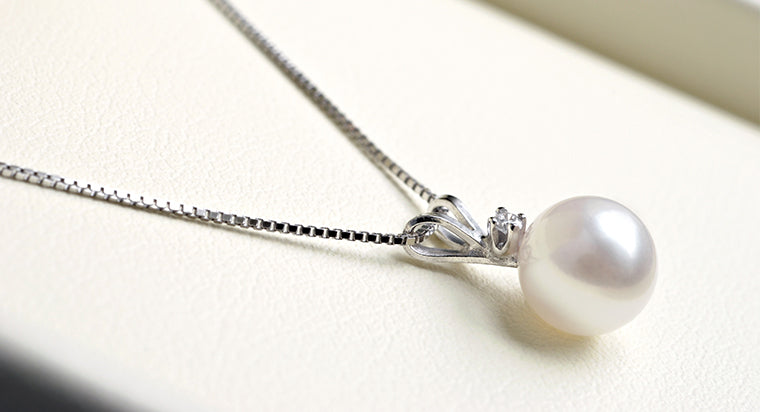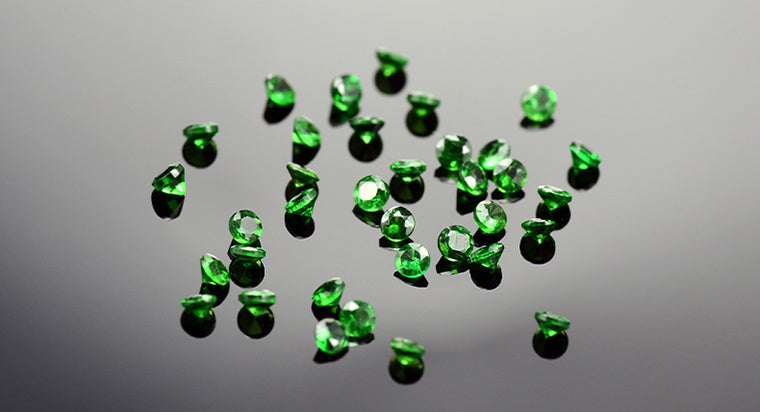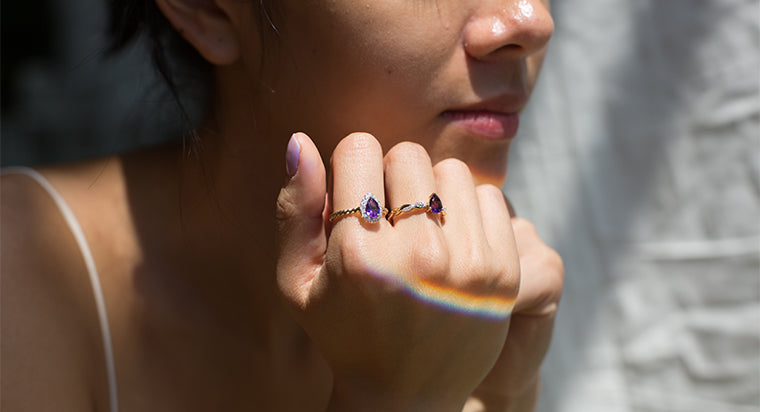Black Diamonds: A Buying Guide

When most of us think of diamonds, the first thing that comes to mind is the traditional colorless sparkler. But did you know that there are also black diamonds available?
Also called “carbonados,” this rare gemstone is experiencing increased popularity. Perhaps as a result of this popularity, people everywhere are asking their jewelers, “are black diamonds real?” At With Clarity, we’re here to inform you that black diamonds are just as “real” as mined or lab-grown colorless diamonds. In fact, they’re rare and valuable. Before you run out and buy a pair of black diamond earrings though, here are some things to consider.
TABLE OF CONTENTS
What do black diamonds mean?
Just about everything in this world has a meaning, and black diamonds are no different. First, their black color reflects authority and power, which along with the meaning of diamond in general, makes carbonados something that calls a wealthy and important person to mind. Other people consider these black gems to attract achievement, stability and inner strength. Lastly, like its white counterparts, black diamonds are a symbol of strong relationships and romance.
Besides their unique look, we believe the meaning behind these gemstones is one reason black diamond engagement rings are becoming more popular.
How are black diamonds different?
1. Besides their color, these dark gems distinguish themselves from diamonds of other colors in several ways. Perhaps the most prominent is the way in which they get their color: with graphite crystals and other significant irregularities inside the stone. Graphite is a form of carbon, most commonly known as the material the “lead” in pencils is made out of.
2. In other words, natural black diamonds are a combination of two different types of pure carbon. On the ground, they can look like pieces of charcoal, which is why they’re called carbonados. Currently, the main sources are Brazil and the Central African Republic.
3. Another major difference between black diamonds and all others is that they should appear to be opaque because the black color results from the diamond absorbing all the light.
Many large black diamonds do have uneven color, which is actually undesirable. Be sure that if you’re shopping for men’s black diamond wedding rings, that the diamonds selected have a uniform color.
Black diamond color, cut, and clarity
If you’ve ever shopped for white diamonds, you know that diamonds are graded with the 4 C’s: carat, color, cut, and clarity.
Carat
Carat is the same for all colors of diamonds, with one small difference: black diamonds are a little bit less dense, so a one-carat black diamond can look physically smaller than a white diamond. For this reason, we recommend purchasing a ring with black and white diamonds to create a “fuller” look.
Color
Color is the next factor, and black gems are different here as well. White diamonds are graded on a scale of D-Z, with the grades D-F being colorless and G-J being nearly so. However, the GIA and other reputable labs use for colored diamonds.
As a general rule, black diamonds are considered “fancy,” with their color being designated as either natural or heat-treated. Ideally, a black diamond should have excellent color distribution: in other words, it shouldn’t have white specks in it, or a lot of visual distraction.
Cut
Like all diamonds, black stones need to be cut before we can set them into black diamond jewelry. As a rule, black fancy stones can be given any cut that other diamonds can, but the most popular choices are round brilliant and princess.
Brilliant cuts are those which are designed to produce the most sparkle in diamonds. While the sparkle factor is different for carbonados, the cutter still aims to have as much light as possible bounce off the pavilion (top) facets. While the round brilliant cut is the most popular choice for black diamond engagement rings, princess cuts (square brilliants) are almost equally popular.
Other brilliant cuts include oval, pear, marquise, and heart. On the other hand, step cuts were designed to show off the clarity of a stone. They have long lines and fewer facets. Arguably the most famous step cut is called the emerald cut, because it was originally invented to show off the color of emeralds.
Clarity
Unfortunately, most black diamonds can’t be readily graded by gemological laboratories because of their clarity. If their black color is well-defined but the gemologist can see through the stone well enough to examine the facets, then the stone is eligible for a colored diamond grading report. Carbonados that are eligible for this report are extremely rare and expensive.
Because of these difficulties, the jewelry trade has developed a different scale for black diamonds: the best ones are graded AAA, while the worst quality are I1. In a nutshell, carbonados are more desirable when they are dark and uniform in color, when their facets are well cut, and when there aren’t any “streaks” in the stone that make it less black.
Ideally, a black diamond ring should be made with a stone where there’s a nice reflection off the facets, to the point of being glossy. When black diamonds meet this ideal, they’re called AAA, and when they have a few surface flaws or maybe are a bit less intensely black, they become AA. At With Clarity, we only use AAA grade carbonados, so you can buy with confidence. It should probably be noted, however, that our black diamonds are heat treated.
Black diamond treatment
As with other colored gemstones, black diamonds are often heat and pressure treated to enhance their color. While the aim of treatment in most stones is to enhance clarity. In the case of black diamonds, the stone is treated to turn lower-quality white diamonds black. Essentially, there are three ways of doing this.
1. Radiation treatment changes the inclusions and rearranges the atoms in such a way that the stone turns black.
2. High temperature, high pressure (HTHP) does the same thing, except that in this case graphite forms inside the crystal.
3. Lastly, chemical vapor deposition (CVD), so that the diamond forms differently.
Going shopping?
At With Clarity, our gemologists are always ready to help you choose the perfect natural black diamond ring. We carry ready-made diamond rings costing $2,000-3,000, but custom rings can cost more or less. Before contacting us, it’s important to know how much you can afford to spend. Especially for engagement rings, choose a price that’s affordable, but still lets you make a statement.
We also offer financing for that big purchase. Confused about shape? We’ll help you, but have an idea of her sense of style. Also, certain shapes provide better value (princess), while others are always classic (round). If you want a black diamond ring, consider 14kt white gold. White metals make the black stone stand-out in ways that are truly stunning.
FAQs
What is a black diamond?
A black diamond, also called “carbonados” is a rare gemstone that is black in color rather than the traditional colorless sparkler we often resonate a diamond with. Like their white counterparts, black diamonds are a symbol of strong relationships and romance.
Are black diamonds real?
Yes, black diamonds are very real, and in fact, are quite valuable.
How to identify a black diamond?
It is easy to identify a black diamond’s authenticity. A true black diamond will always have an uneven surface, even under 10x magnification. Also, both, a black as well as a white diamond have a high density, and a waterdrop test can help determine its authenticity. Take a glass of water and insert the black diamond, if it sinks to the bottom, chances are that it is real.
How much are black diamonds worth?
The worth of black diamonds would depend on whether it is heat-treated or untreated. Treated black diamonds have an average cost of $300 per carat, while untreated black diamonds have an average cost of $3,000 per carat.
Are black diamonds rare?
Yes, black diamonds are rare. It is said that only one in 10,000 natural diamonds are colored and only a small fragment of these are black in color.









